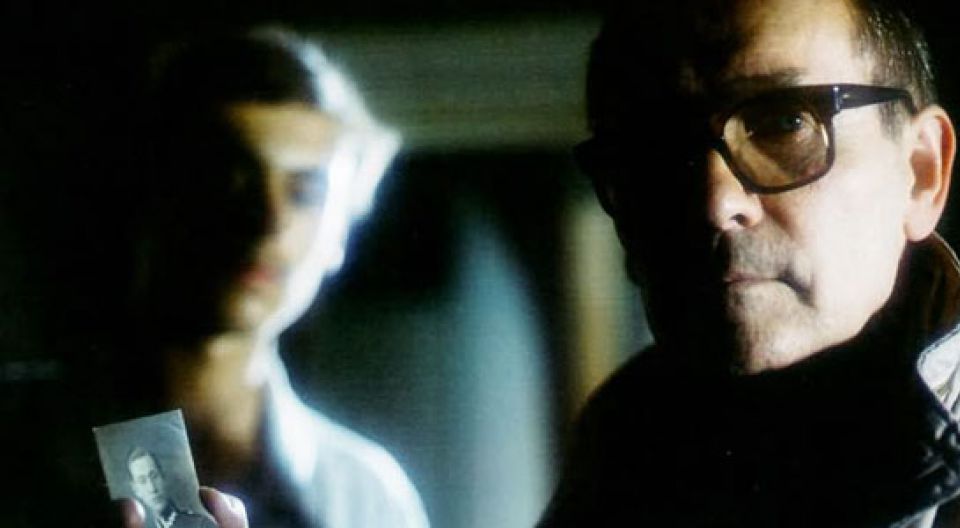08.
01.
2015.
Others
Others
Tadeusz Konwicki, an outstanding writer, film director and screenwriter, died at the age of 88. He was one of the most prominent representatives of Polish culture.
Tadeusz Konwicki, a prose writer, screenwriter and film director; the author of many prominent literary works, amongst them "A Minor Apocalypse" (1979), "Ascension into Heaven" (1967) and "A Chronicle of Amorous Incidents" (1974). He also placed himself amongst the greatest Polish film directors.
His film journey started in Lodz where he completed a script-writing course for young writers organised by Bolesław Lewicki at the Łódź Film School. He was one of the forefathers of the so called “Polish School of Film”. He acted as literary manager for the film-making groups: “Kadr” from 1956-58, “Kraj” from 1970-72 and “Pryzmat” from 1972-77 and "Perspektywy" (1989-1991), initiating many film projects.
He made his screenwriting debut in 1954, followed by his debut as a film director four years later. He directed five full-length feature films: "The Last Day of Summer" (1958) , "All Souls’ Day" (1961), "Salto" (1965), "How Far from Here, How Close" (1971), "The Issa Valley" (1982) and "Lava" (1989). Most of Konwicki's films were based on screenplays he wrote himself. His two literary adaptations – “The Issa Valley”, from the novel by Czesław Miłosz and Lava, from “Dziady / The Forefathers' Eve” by Adam Mickiewicz - both used Konwicki's own scripts.
Konwicki was a forerunner of European trends; his film debut “The Last Day of Summer”, which is often compared to the French New Wave, was already being screened while the French film-makers (Godard and Truffaut) were only just working out the principles of the New Wave breakthrough. Konwicki won the Grand Prix for “The Last Day of Summer”, awarded at the International Festival of Documentary and Short Feature Films in Venice in 1958.
As a script-writer, Konwicki has successfully adapted several literary works for other directors. “The Pharaoh”, “Mother Joan of Angels” and “Austeria” are the best examples. Of particular note is “A Chronicle of Amorous Incidents”, directed by Andrzej Wajda, for which Konwicki adapted his own novel. He was the screenwriter for the films "Winter Dusk" by Stanisław Lenartowicz, and "Jowita" by Janusz Morgenstern. Konwicki’s novels themselves were adapted for films by other directors. Krzysztof Wojciechowski directed a film "Wings" after Konwicki’s novel The Anthropos-Spectre-Beast, and Costa-Gavras’ film “La petite apocalypse starring” Jiri Menzel is a loose interpretation of Konvicki’s novel. Konwicki also won the Special Award for the script of “How Far, How Close to Here” at the San Remo Film Festival, and the "Eagle" Polish Film Award for Lifetime Achievement in 2001.
His film journey started in Lodz where he completed a script-writing course for young writers organised by Bolesław Lewicki at the Łódź Film School. He was one of the forefathers of the so called “Polish School of Film”. He acted as literary manager for the film-making groups: “Kadr” from 1956-58, “Kraj” from 1970-72 and “Pryzmat” from 1972-77 and "Perspektywy" (1989-1991), initiating many film projects.
He made his screenwriting debut in 1954, followed by his debut as a film director four years later. He directed five full-length feature films: "The Last Day of Summer" (1958) , "All Souls’ Day" (1961), "Salto" (1965), "How Far from Here, How Close" (1971), "The Issa Valley" (1982) and "Lava" (1989). Most of Konwicki's films were based on screenplays he wrote himself. His two literary adaptations – “The Issa Valley”, from the novel by Czesław Miłosz and Lava, from “Dziady / The Forefathers' Eve” by Adam Mickiewicz - both used Konwicki's own scripts.
Konwicki was a forerunner of European trends; his film debut “The Last Day of Summer”, which is often compared to the French New Wave, was already being screened while the French film-makers (Godard and Truffaut) were only just working out the principles of the New Wave breakthrough. Konwicki won the Grand Prix for “The Last Day of Summer”, awarded at the International Festival of Documentary and Short Feature Films in Venice in 1958.
As a script-writer, Konwicki has successfully adapted several literary works for other directors. “The Pharaoh”, “Mother Joan of Angels” and “Austeria” are the best examples. Of particular note is “A Chronicle of Amorous Incidents”, directed by Andrzej Wajda, for which Konwicki adapted his own novel. He was the screenwriter for the films "Winter Dusk" by Stanisław Lenartowicz, and "Jowita" by Janusz Morgenstern. Konwicki’s novels themselves were adapted for films by other directors. Krzysztof Wojciechowski directed a film "Wings" after Konwicki’s novel The Anthropos-Spectre-Beast, and Costa-Gavras’ film “La petite apocalypse starring” Jiri Menzel is a loose interpretation of Konvicki’s novel. Konwicki also won the Special Award for the script of “How Far, How Close to Here” at the San Remo Film Festival, and the "Eagle" Polish Film Award for Lifetime Achievement in 2001.
